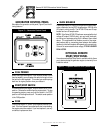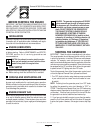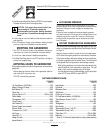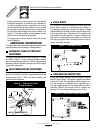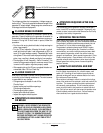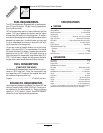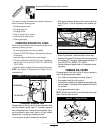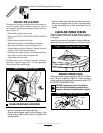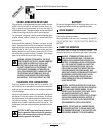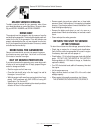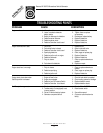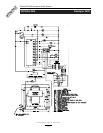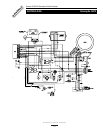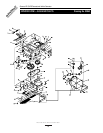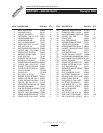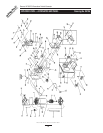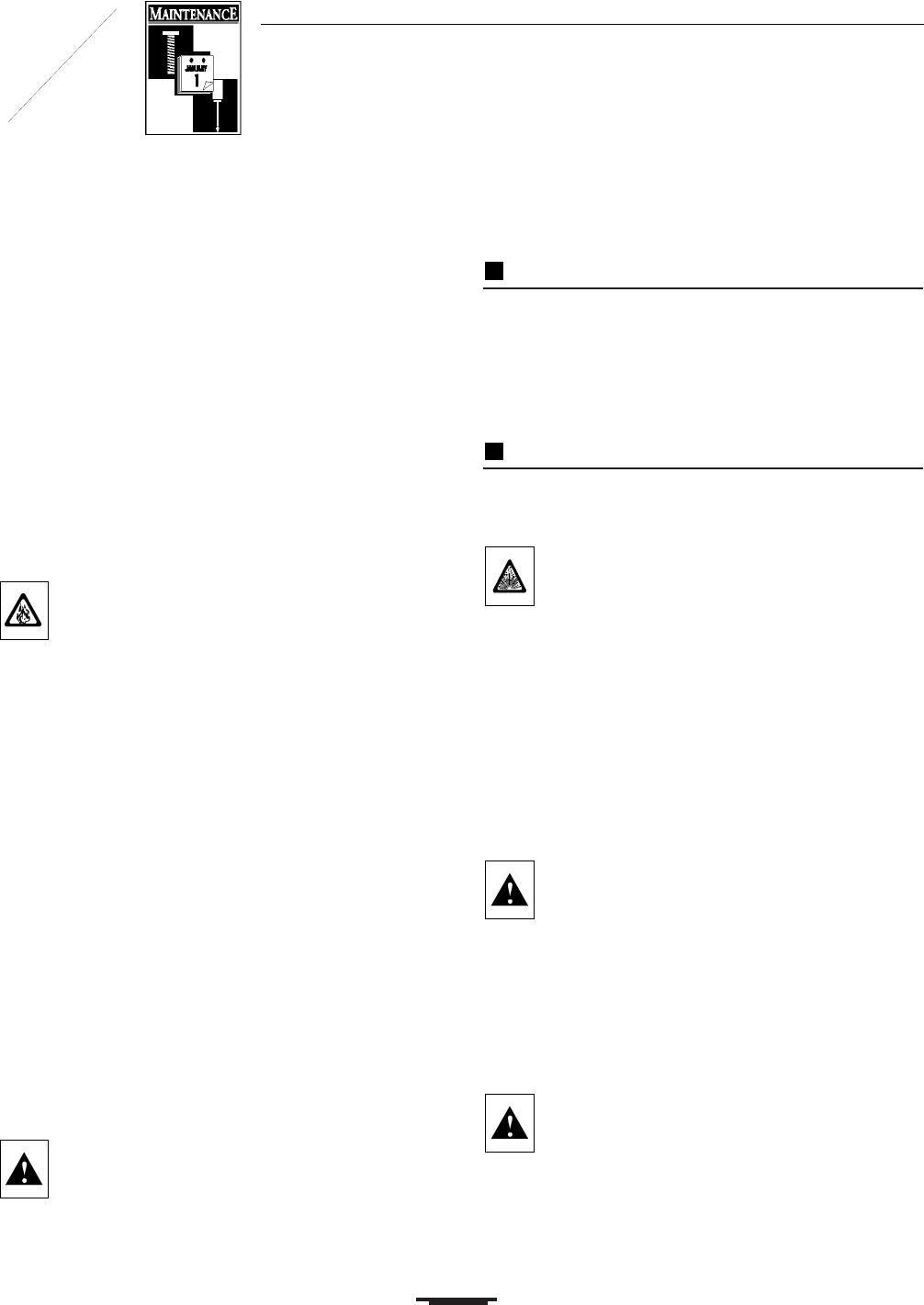
15
Recreational Vehicle Generator
SPARK ARRESTOR MUFFLER
If the generator is not equipped with a spark arrestor exhaust
muffler and is to be used on any forest covered, brush cov-
ered or grass covered unimproved land, you may have to
install a spark arrestor. The spark arrestor must be maintained
in effective working order by the vehicle owner/operator.
For assistance in ordering, installing and maintaining spark
arrestor exhaust mufflers, contact your nearest authorized
service facility.
Exhaust mufflers supplied by Generac are spark arrestor
types. Generac exhaust muffler for recreational vehicle gen-
erators do not have a spark arrestor screen, but are of the more
efficient “toroid” or “swirl” type. To remove carbon and com-
bustion deposits from such mufflers, remove the PLUG from
the muffler and run engine for about 15 minutes. Shut engine
down, let the muffler cool and install the plug.
WARNING: BE SURE TO RE-INSTALL THE PLUG
FROM THE MUFFLER TIGHTLY. ENGINE VIBRATION
COULD CAUSE A LOOSE PLUG TO FALL OUT.
WITHOUT THE PLUG IN PLACE, HOT ENGINE
EXHAUST IS DIRECTED OUT THE OPENING. THIS
HOT EXHAUST, DEPENDING ON THE INSTALLA-
TION, COULD BE DIRECTED TO AREAS NOT ABLE
TO WITHSTAND THE EXTREME HEAT SUCH AS
WOODEN FLOOR BOARDS OR OTHER FLAMMA-
BLE MATERIAL. THIS COULD RESULT IN A FIRE.
CLEANING THE GENERATOR
Keep your generator set as clean and dry as possible. Dirt
and moisture that are permitted to accumulate on electrical
windings have an adverse affect on the insulation resistance
of those windings.
Moisture that is allowed to remain in contact with windings will
be retained in voids and cracks of the windings. Dirt makes
the problem worse, since it tends to hold the moisture into con-
tact with the windings. Salt, as from sea air, worsens the
problem since it tends to absorb moisture from the air. The
combination of salt and moisture makes a good electrical con-
ductor.
CAUTION! Do NOT use a forceful spray of water to
clean the generator. Water will enter the generator
interior and cause problems, and may also conta-
minate the generator fuel system.
BATTERY
All lead-acid storage batteries will discharge when not in use.
The generator battery should be inspected as follows:
ONCE WEEKLY
Inspect battery posts and cables for tightness, corrosion.
Clean and/or tighten as needed.
Also check battery fluid level, and, if necessary, fill with DIS-
TILLED WATER ONLY. DO NOT USE TAP WATER IN
BATTERY.
EVERY SIX MONTHS
Have battery state of charge and condition checked. This
should be done with an automotive type battery hydrometer.
DANGER: STORAGE BATTERIES GIVE OFF
EXPLOSIVE HYDROGEN GAS. THIS GAS CAN
FORM AN EXPLOSIVE MIXTURE AROUND THE
BATTERY FOR SEVERAL HOURS AFTER CHARG-
ING. THE SLIGHTEST SPARK CAN IGNITE THE
GAS AND CAUSE AN EXPLOSION. SUCH AN
EXPLOSION CAN SHATTER THE BATTERY AND
CAUSE BLINDNESS OR OTHER INJURY. ANY
AREA THAT HOUSES A STORAGE BATTERY MUST
BE PROPERLY VENTILATED DO NOT ALLOW
SMOKING, OPEN FLAME, SPARKS OR ANY
SPARK PRODUCING TOOLS OR EQUIPMENT
NEAR THE BATTERY.
DANGER: BATTERY ELECTROLYTE FLUID IS AN
EXTREMELY CAUSTIC SULFURIC ACID SOLUTION
THAT CAN CAUSE SEVERE BURNS. DO NOT
PERMIT FLUID TO CONTACT EYES, SKIN, CLOTH-
ING, PAINTED SURFACES, ETC. WEAR
PROTECTIVE GOGGLES, PROTECTIVE CLOTHING
AND GLOVES WHEN HANDLING A BATTERY. IF
YOU SPILL THE FLUID, FLUSH THE AFFECTED
AREA IMMEDIATELY WITH CLEAR WATER.
DANGER: DO NOT USE ANY JUMPER CABLES
OR BOOSTER BATTERY TO CRANK AND START
THE GENERATOR ENGINE. IF ANY BATTERY HAS
DISCHARGED, REMOVE IT FOR RECHARGING.
Generac NP-50LPG Recreational Vehicle Generator
GENERAC
®
CORPORATION



